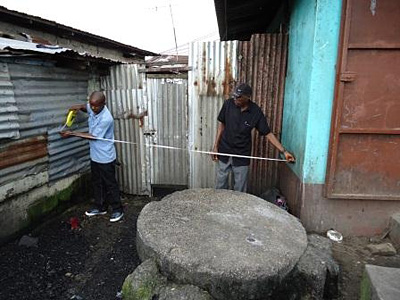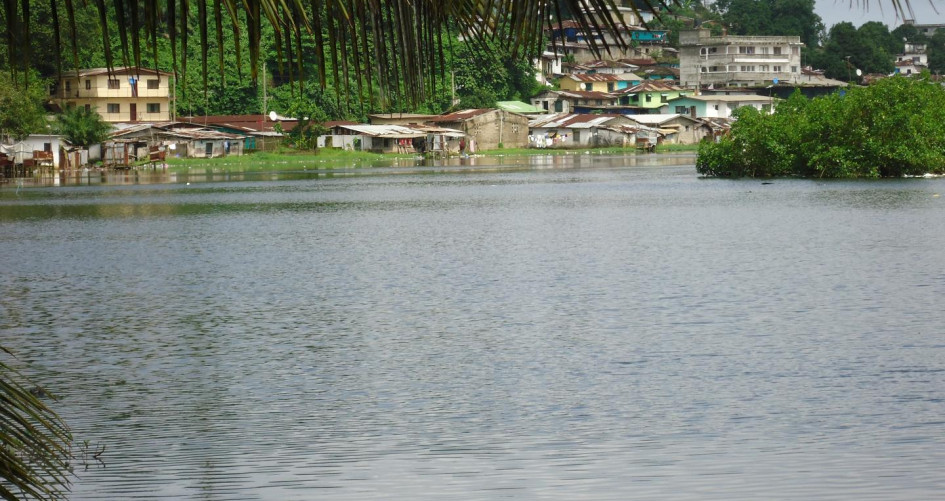Since the civil war ended in Liberia in 2003, many areas of the capital of Monrovia still have damaged sewer infrastructure. Fecal sludge in latrines is left untreated, which is causing health problems and emitting methane, which is a potent greenhouse gas. Fostering Innovative Sanitation and Hygiene (FISH) is the first initiative by the Liberian government, since the civil war, to provide fecal sludge management services to unsewered poor areas of Liberia, reducing greenhouse gas emissions while providing new or improved access to sanitation for 800,000 people.
Fast facts
- 800,000 people provided with new or improved access to sanitation;
- 15 businesses and 55 new jobs created for the urban poor;
- 30 per cent of the new businesses will be owned by women.
The problem
Liberia's civil war (1989-2003) resulted in limited infrastructure maintenance and development, particularly in the sanitation and water sectors. The government of Liberia has not provided faecal sludge sewer management services in Monrovia's informal settlements, where 70 per cent of the population has lived since the end of the civil war in 2003.
The long-standing conflict put a halt to infrastructure maintenance and development, particularly in the areas of water (access to adequate water supply is at 27 per cent) and safe sanitation (7 per cent). More than 800,000 people in Monrovia lack access to sewer systems. Accumulated and untreated fecal sludge from existing latrines already causes methane emissions (with 25 times more greenhouse impact than CO2).

The solution
FISH is the first initiative by the government of Liberia to provide fecal sludge management services to unsewered poor areas of Liberia since the end of the civil war in 2003. This activity enhances capacity for sustainable city-wide faecal sludge management through a community-driven approach. It is doing so by improving the toilet facilities of households, by rehabilitating the sewerage system, by implementing communal toilet facilities for dense settlements and by providing public toilet facilities in market places.
In addition to increasing urban slum dwellers’ access to sanitation and hygiene services, the initiative will collect and treat fecal sludge along with the controlled capture of biogas to produce reusable products and fertilizer, reducing greenhouse gas emissions. The activity is also creating health benefits for local populations by reducing their vulnerability to water-borne diseases that result from open defecation and septic tank overflows.
 Helping people
Helping people
This activity helps the urban poor in Monrovia by promoting community-based enterprises and management teams to build local ownership; by employing local artisans to build the required septic tanks; by using a public-private-partnership model for emptying services; and by providing technical assistance for devising an effective marketing and sales strategy to kick off the sale of faecal sludge fertilizer, to ensure a successful pitch to local farmers and boost sales. Derived economic benefits include creating 15 businesses and 55 new jobs for the urban poor.
Spillover effect
The activity is expected to be scaled up to cover all unsewered urban areas in Monrovia and throughout Liberia. It is also expected to build donor confidence in Liberia.




Images owned by the activity partners, all rights reserved.

